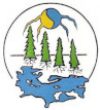Governance Principles
Governing regional programs and services for Island Lake while respecting the autonomy of each First Nation.
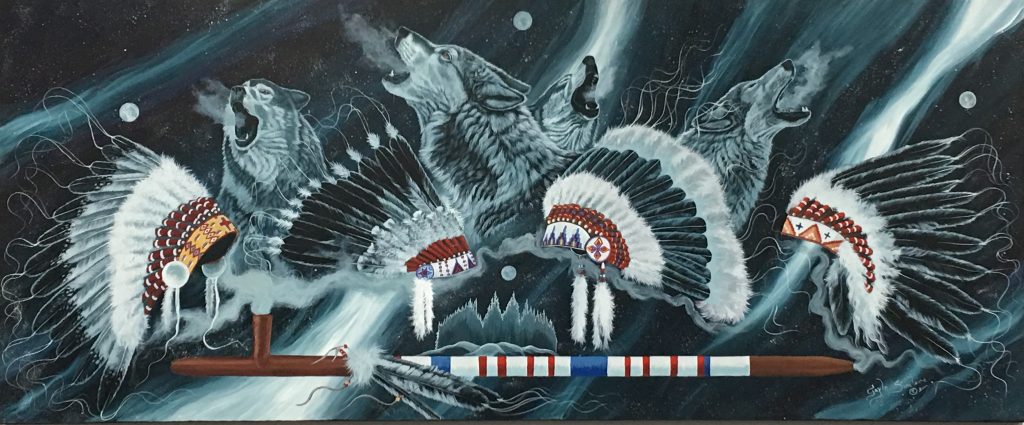
The Purpose
The purpose of this website is to inform Island Lake Members, Governments, Partners and Stakeholders the Governance Structure being formed for Island Lake.
The member communities are the four Island Lake First Nations, Garden Hill First Nation, Wasagamack First Nation, St. Theresa Point First Nation and Red Sucker Lake First Nation.
The Why
The need for strengthened regional governance and services grew from a sense that regional services offered by PTOs were not adequately serving the needs of our communities. That conclusion is founded on the reality that support and resources from the northern PTO (MKO) did not match our membership needs and did not reflect our representation or our distinct culture and history.
Additionally, there was a conviction that the capabilities within Island Lake were many and can well serve the needs of the membership when we work together. This sense led to our
four Island Lake communities withdrawing from MKO. This opened the potential and need to develop a direct nation to nation relationship with Canada and the province, as well as establish new relationships with other indigenous organizations within Manitoba and Canada.
The Outcome
The leadership is clear that with Island Lake communities moving forward in unity, there is a need to develop, review and renew direct relationships with Canada and Manitoba to ensure they fulfill their obligations to our people. In order to ensure our sovereignty is respected and fulfilled, we also need to ensure our regional governance and regional unity are strong. This has led to the formation of the Governance Working Group.
Approach for strengthened regional governance in Island Lake
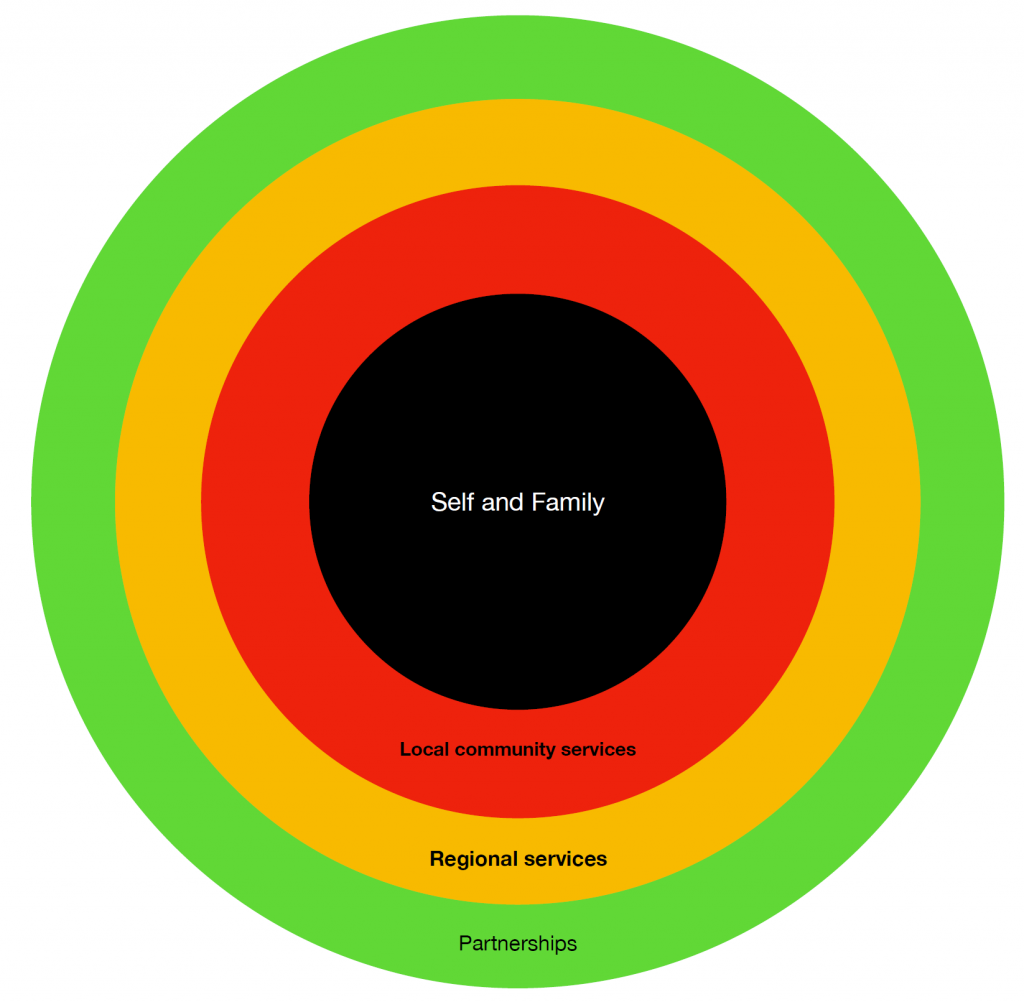
A simple yet powerful representation of how the membership is the source of governing authority and how it entrusts authority within various structures, such as Chief and Council, or a regional structure from time to time.
In the circular graphic, the membership is displayed in the middle of the graphic and is the source of all authority for the governance model.
Chiefs and Councils would continue as they are currently operating and retain the responsibility to be the leaders and stewards of the well-being of each community. Community services would continue to be part of the Chief and Council organization.
A Grand Council would be convened by a Grand Chief. The Grand Chief would be directly elected by the whole membership at large of the four communities. Recommended specifics of the Grand Chief/Grand Council are detailed in the next section.
The outer ring of the graphic represents the various partnerships with the Crown, province, other indigenous organizations that the Chief and Councils or Grand Chief would enter into for the benefit of the membership.
The Recommended Model For Increased Governance
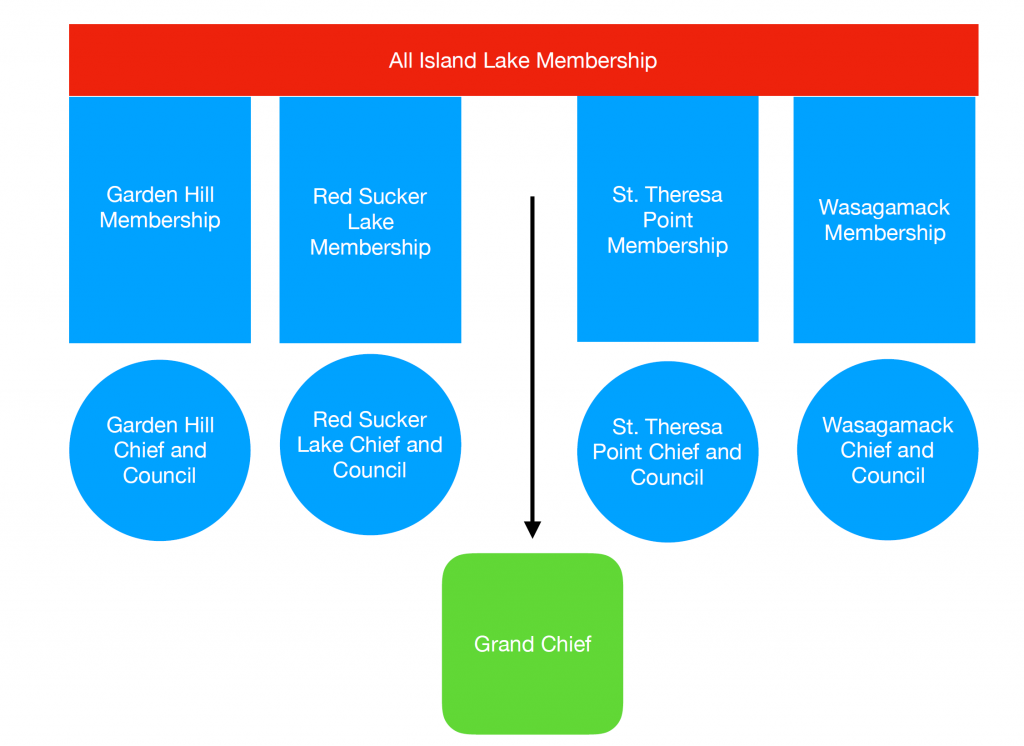
The model foresees a direct nation to nation relationship with Canada and the province. The overall approach for a strengthened regional organization follows the principle that all governance authority is held by the membership. From time to time authority is vested with Chiefs and Councils and a proposed new Grand Chief and Grand Council. Chiefs and Councils would continue as they are currently operating and retain the responsibility to be the leaders and stewards of the well-being of each community. Community services would continue to be part of the Chief and Council organization.
The Grand Chief is to be elected directly by the whole membership of the four communities from a list of candidates proposed and /or nominated by elders from each community. The elders in the community will determine how to undertake the nomination process. This is in keeping with the traditional approaches to community leadership.
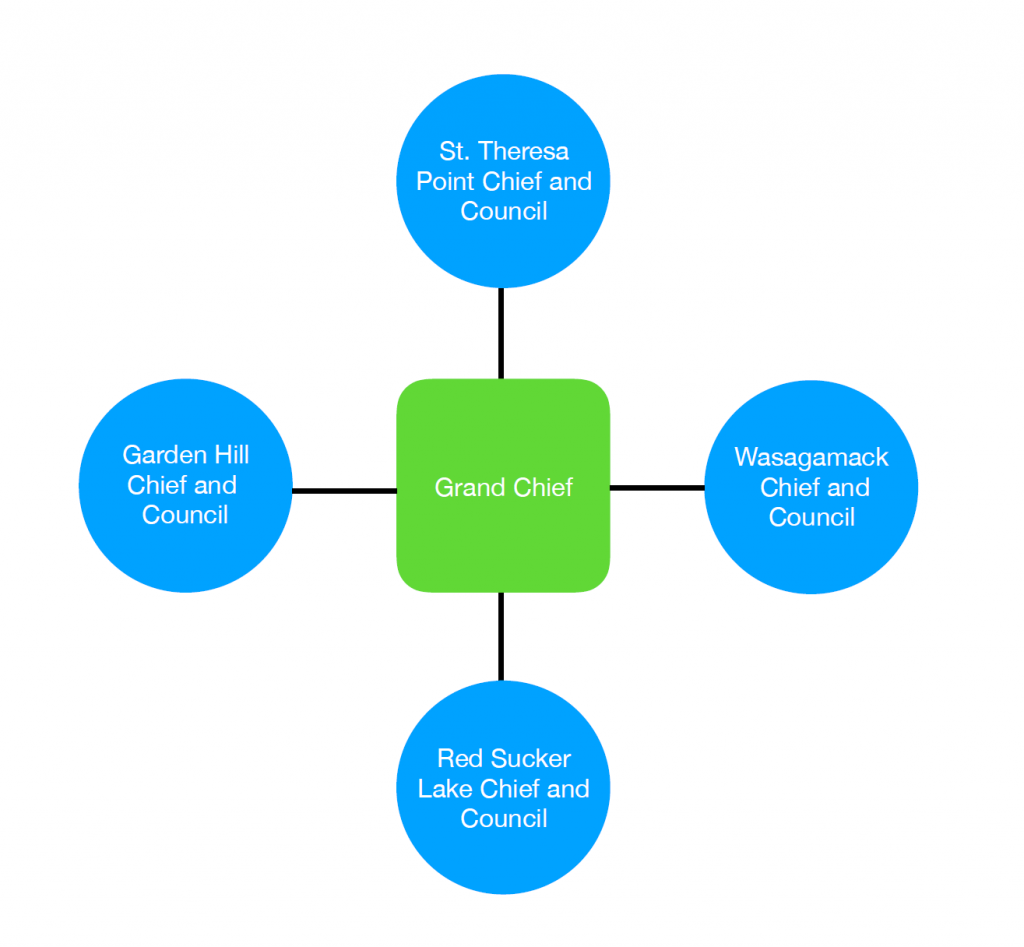
The Grand Chief will advance regional well-being (minoyawin) and opportunities on an ongoing basis and will report to the Grand Council and membership on an annual basis. The Grand Chief will
also provide a small administrative/secretariat staff in support of common or shared services among the regional services, as well as in support of advice related to Crown and Treaty matters that are common to our communities. Questions regarding the ongoing role of ILTC, if any, will need further discussion and planning.
